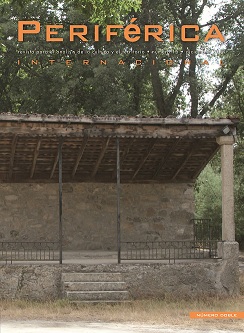Pasado sin futuro&futuro sin pasado
Résumé
Deseo relatar una simple anécdota personal. Pero que es también una experiencia en el medio de la lengua. Ya sé que todo esto se ha repetido infinitas veces: nacimos en la lengua, somos el lenguaje, Logos como estructura significante, el sujeto como intersección metonímica, la existencia humana una sombra escritural... De todas maneras quiero subrayar que esta condición lingüística no constituye una segunda naturaleza, ni define nuestra existencia. Nuestra conciencia solamente toma cuenta plenamente de nuestro ser, y por consiguiente solo puede afirmarse como vida, expresión y voluntad de ser a partir del momento en que cuestiona reflexivamente este lenguaje y, por consiguiente, se cuestiona por sus contenidos espirituales, históricos, sociales y políticos. En realidad, una lengua es intelectualmente viva solamente en la medida en que es capaz de atravesar esta experiencia reflexiva consigo misma. Este es el punto de partida de la más elemental creación artística en el medio del lenguaje. Aunque el academicismo hoy globalmente dominante proponga la posición tecnocrática contraria: pérdida de la experiencia, reducción de la creatividad a un sistema de normas lingüísticas y la exaltación futurista de la escritura biológica, simbólica y tecnomilitar del pos- humano. Past without a future & future without a past Abstrac: I want to relate a simple personal anecdote. But that is also an experience in the middle of the language. I know that all this has been repeated infinitely many times: we were born in language, we are language, Logos as a signifying structure, the subject as a metonymic intersection, human existence a scriptural shadow ... In any case, I want to underline that this linguistic condition It does not constitute second nature, nor does it define our existence.Our consciousness only fully takes account of our being, and consequently it can only affirm itself as life, expression and will to be from the moment in which it reflexively questions this language and, consequently, questions itself. for its spiritual, historical, social and political content. In reality, a language is intellectually alive only insofar as it is capable of undergoing this reflective experience with itself. This is the starting point of the most elementary artistic creation in the medium of language. Although today's globally dominant academicism proposes the opposite technocratic position: loss of experience, reduction of creativity to a system of linguistic norms and the futuristic exaltation of post-human biological, symbolic and techno-military writing. Artículo recibido: 14/10/2014. Aceptado: 19/11/2014Téléchargements
Les données relatives au téléchargement ne sont pas encore disponibles.
Comment citer
Subirats, E. (2015). Pasado sin futuro&futuro sin pasado. Periférica Internacional. Revista Para El análisis De La Cultura Y El Territorio, (15), 19–36. https://doi.org/10.25267/Periferica.2014.i15.01
Licence

Este obra está bajo una licencia de Creative Commons Reconocimiento-NoComercial-SinObraDerivada 4.0 España.






